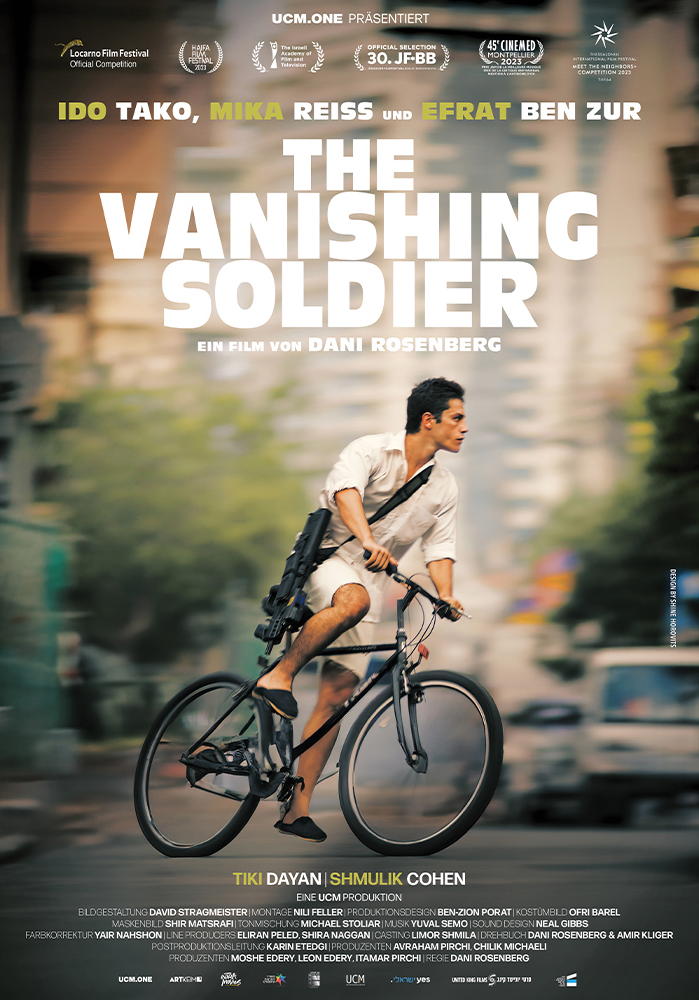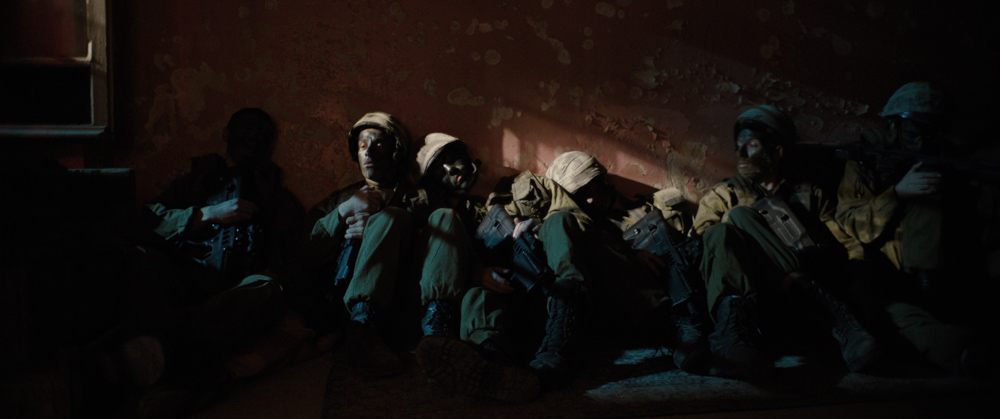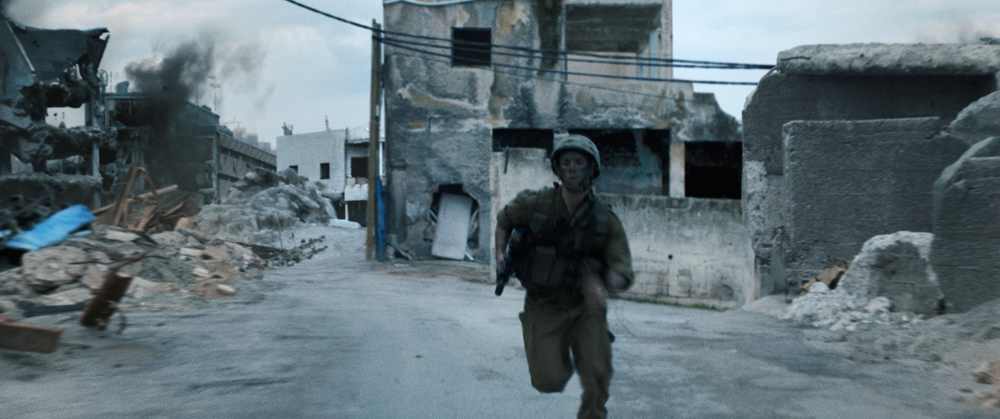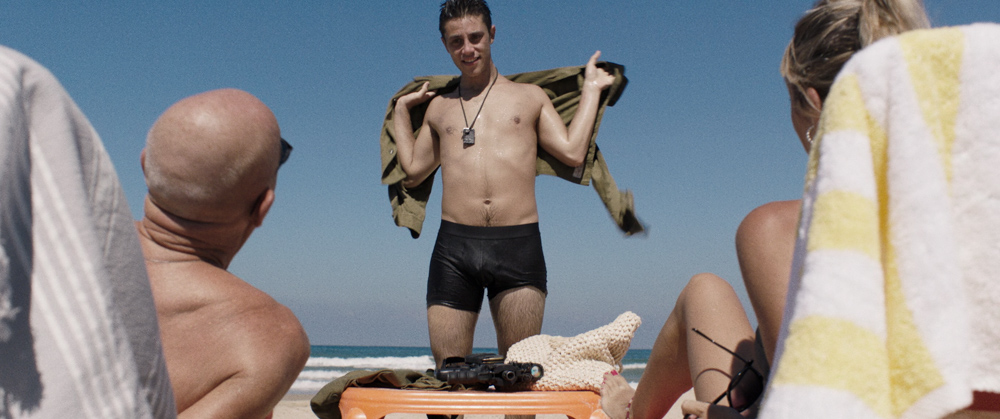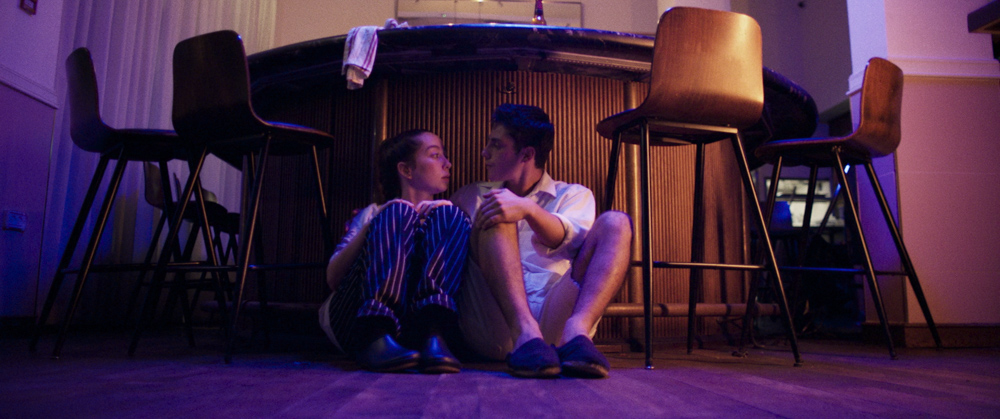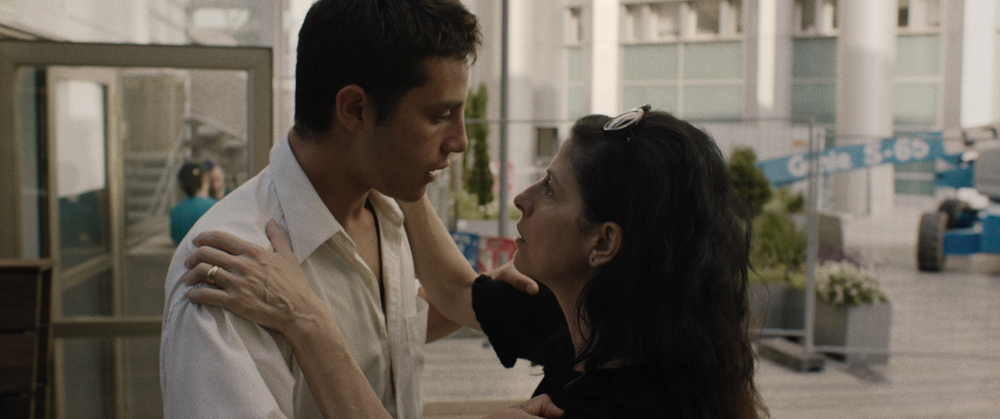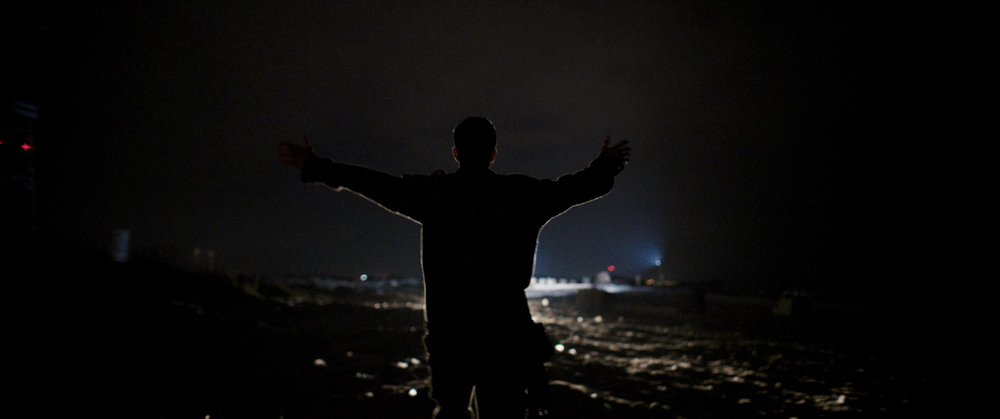The film about Shlomi, an 18-year-old Israeli IDF soldier who irregularly leaves the troops fighting in the Gaza Strip to flee to his girlfriend in Tel Aviv, is the second feature film by Israeli director Dani Rosenberg (born 1979). The film is an impressive, poetic and existential picture of a youth in Israel, a young generation confronted with the permanent state of national defense and war. The stirring drama celebrated its world premiere at the Locarno Film Festival 2023, was nominated for the European Film Award 2023 and received numerous international awards at renowned film festivals such as the Haifa Film Festival 2023 and the Montpellier International Film Festival 2023.
The Jewish Film Festival Berlin Brandenburg (JFBB), which celebrates its 30th edition from June 18 to 23, 2024 in Berlin, Potsdam and other cities in Brandenburg, presents the latest films across all genres, from blockbusters to comedies to arthouse cinema and presents a diverse and lively Jewish cultural scene for six days, gives an extraordinary insight into Jewish life around the world and offers a platform for intercultural discourse.
The two competitions for feature films and documentaries are traditionally at the heart of the anniversary year. There are also short films and supplementary film series; this year, anti-Semitism and cinematic reflections on terror and trauma are further key themes.
UCM.ONE will bring the film to cinemas in Germany, Austria and German-speaking Switzerland from fall 2024 with its own German-language dubbed version on the Artkeim² film label.
Screening dates at the 30th Jewish Film Festival Berlin Brandenburg (30th JFBB)
Berlin:
Thursday, June 20, 2024, 18:00, Bundesplatz-Kino, Berlin, in the presence of the main star Ido Tako. (tickets)
Friday, June 21, 2024, 19:00, Filmkunst 66 in Berlin, in the presence of the main star Ido Tako.(tickets)
Potsdam:
Saturday, June 22, 2024, 8:30 pm, Thalia Babelsberg, Potsdam, in the presence of the main star Ido Tako.(tickets)
Summary
About Dani Rosenberg (Director and co-author)
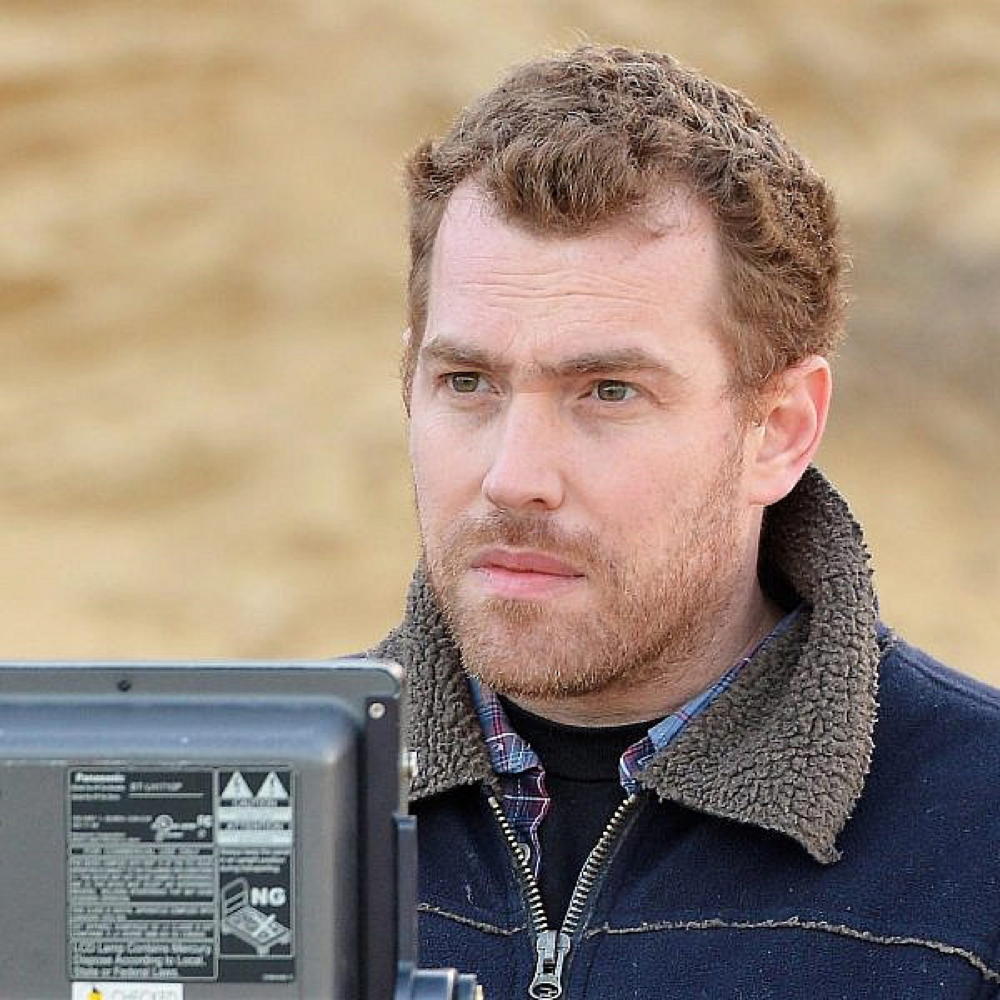
Born in 1979 in Tel Aviv-Jaffa, Israel, he studied at the Sam Spiegel Film and Television Academy in Jerusalem, from which he graduated with honors in 2006.
The short films “Don Kishot be’Yerushalaim” (2005) and “Susya” (2011) were shown at the Berlinale. After working on the medium-length film “Homeland” (2008) and various television series, his feature film “The Death of Cinema and My Father Too” (2020) was part of the official selection of the Cannes Film Festival 2020 and won the Haggiag Film Prize of the Jerusalem Film Festival 2020.
His award-winning short films have been shown at prestigious international film festivals, including Cannes Cinéfondation Competition, Berlinale, Clermont Ferrand, HotDocs and IDFA.
His acclaimed television series “Milk & Honey” was successfully adapted in Germany and France. Dani Rosenberg co-wrote a documentary film “Zohar, The Return” and co-wrote Sholem Asch‘s “God of Vengeance” for Israel’s leading theater “The Cameri” in 2018. “The Vanishing Soldier” is Dani Rosenberg‘s second feature film.
Datas to the movie
| Titel: |
The Vanishing Soldier
|
| Original titel: |
החייל הנעלם
|
| Director: | Dani Rosenberg |
| Sceenplay: |
Dani Rosenberg, Amir Klinger
|
| Producer: |
Avraham Pirchi, Chilik Michaeli, Itamar Pirchi, Leon Edery, Moshe Edery
|
| Starring: |
Ido Tako, Mika Reiss, Efrat Ben Tzur, Tikva Dayan, Shmulik Cohen, Yariv Horowitz, Seif Nabul, Mushy Vider
|
| Cinemantography: |
David Stragmeister
|
| Editing: |
Nili Feller
|
| Country: | Israel |
| Year of production: | 2023 |
| Prouction companies: |
Israel Film Fund, United Channel Movies
|
| Genres: |
Drama, Thriller, Kriegsdrama
|
| Length: | 98 Min |
| Languages: |
hebräisch, englisch (Originalsprachen), deutsche Synchronfassung (in Vorbereitung) |
| Subtitles: | englisch |
| Aspect Ratio: |
2,39:1 (2048×858)
|
| Sound: |
5.1 Surround (DCP)
|
| Rating: | FSK 12 (requested |
Director’s statement by Dani Rosenberg
“One night I was standing alone at a guard post in a military camp in the Judean Desert. I was 18 years old and had been through months of violence, training and the scorching sun. On the spur of the moment, I decided to climb down from the observation tower, climb over the camp fence and run in the direction I thought was the main road. In time, the wind blowing in my face slowed my run to a walk. Unable to locate the road, the only lights piercing the dark night were those emanating from the base behind me. After a long and anxious hour, I retraced my steps and stealthily returned to the base without my failed escape attempt being discovered.
I want to get to the bottom of the essence of that event, that night when I rebelled but did not go to extremes. I have tried to decipher why I did not act and why even today, in the midst of the violent reality outside and knowing what my country has done, I remain here and essentially continue to collaborate.
Shlomi shirks his duties, which would have placed him in a cruel and unjust system of oppression and control of the Palestinians. He flees the Gaza Strip and heads to Tel Aviv, a place that seems to symbolize normality, only an hour and a half away from Gaza and yet light years away from it. However, this appearance of normality is broken by walls, fences and complicated systems that intercept the rockets fired from Gaza in small clouds in the sky. Shlomi realizes that he is caught in a constant state of limbo, shuttling back and forth between Gaza and Tel Aviv. He cannot escape the prevailing chaos and violence. It is the tension between passion and law that oscillates between movement and standstill.
Shlomi, a naive dreamer shaped by the legends of Jewish fairy tales, is desperately searching for anchors. He longs for a narrative that can give meaning to his escape, for stories that he can hold on to. But one by one they crumble, from the desolation of his parents’ empty house to the fleeting hope of romance.
Shlomi, the protagonist of “The Disappearing Soldier”, is an 18-year-old soldier fleeing the battlefield to return home. During his journey, Shlomi tirelessly crosses a blurred line that stretches from his escape from the Gaza Strip to Tel Aviv, where the boundaries between a war zone and urban space dissolve. He never stops moving. Perhaps for the first time in his life, Shlomi struggles to find his independent identity, only to realize that the harder he tries, the deeper he sinks into quicksand, until his identity is finally taken over by circumstances.
Against his will, Shlomi is transformed from a deserter to a prisoner, from someone who wanted to distance himself from the war and redefine his identity to an individual whose autonomous existence is consumed by the image of the “captured soldier”. The erosion of Shlomi’s personal identity reflects a broader loss of identity that is intertwined with the development of my country.”
More information about the festival: 30th Jewish Film Festival Berlin Brandenburg


